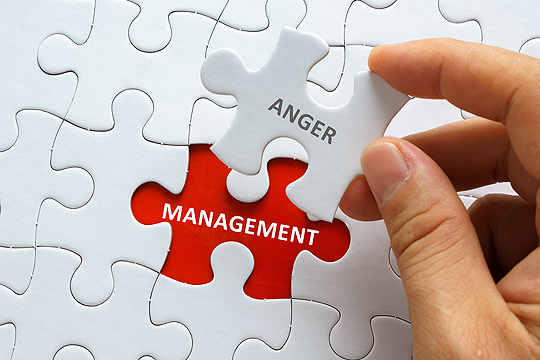Do you often find yourself flying off the handle for seemingly no reason? Do people in your life often complain that you’re always angry? If so, it might be time to consider anger management counseling. Anger can be a destructive force in our lives when it’s not managed properly. It can lead to problems in our relationships, at work, and in our overall mental health. In this blog post, we will discuss the benefits of anger management counseling and how it can help you live a better life!
Contents
- 1 Defining Anger
- 2 What Is Anger Management Counseling?
- 3 Benefits Of Anger Management Counseling
- 4 When Should You Seek Anger Management Counseling?
- 5 Tools And Techniques In Anger Management Counseling
- 5.1 Cognitive-behavioral therapy
- 5.2 Trigger identification
- 5.3 Relaxation techniques
- 5.4 Problem-solving skills training
- 5.5 Deep breathing exercises
- 5.6 Progressive muscle relaxation
- 5.7 Visualization
- 5.8 Anger diffusion techniques
- 5.9 Time management
- 5.10 Assertiveness training
- 5.11 Emotional awareness and regulation
- 5.12 Cognitive reconstruction
- 6 Things To Consider
- 7 Conclusion
Defining Anger
Before we get into the benefits of anger management counseling, it’s important to first understand what anger is. Anger is a normal emotion that we all experience from time to time. It’s a natural response to feeling threatened, frustrated, or helpless. When we experience these emotions, our body releases certain hormones like adrenaline and cortisol. These hormones prepare us to fight or take flight in response to the threat. In other words, they help us deal with the situation at hand.
However, sometimes our anger gets out of control and we lash out at others even when there isn’t any real threat present. This is when anger becomes a problem. When this happens regularly, it can lead to negative consequences in our lives such as relationship problems, job loss, and even health problems.
What Is Anger Management Counseling?

Anger management counseling is a form of therapy that can help you understand your anger and learn how to control it. It’s usually conducted by a licensed mental health professional such as a psychologist, counselor, or social worker. During anger management counseling, you will learn about the triggers that cause your anger and the different ways you can respond to them. You will also explore the thoughts and beliefs that contribute to your angry outbursts. In addition, you will learn healthy coping mechanisms for dealing with anger.
Counseling for anger management can be done in individual or group settings. It usually lasts for a short period, anywhere from a few weeks to a few months. It involves the use of different techniques such as cognitive-behavioral therapy, relaxation techniques, and problem-solving skills training.
Benefits Of Anger Management Counseling
If you’re struggling to control your anger, there are many reasons why you should consider anger management counseling.
- Firstly, anger management counseling can provide you with the tools you need to manage your anger healthily. It can help you understand the root causes of your anger and learn how to control it.
- In addition, anger management counseling can improve your communication skills, help you resolve conflict more constructively, and improve your overall mental health.
- It can help improve your relationships. When you learn how to manage your anger, you will be less likely to lash out at your loved ones and damage the relationship.
- Anger management counseling can help you keep your job. If you’re constantly getting into arguments with co-workers or your boss, it’s only a matter of time before you get fired.
- Counseling can also manage and further enhance your mental health conditions. Chronic anger has been linked to anxiety and depression. So if you’re struggling with angry outbursts, it’s important to seek professional help.
- Anger management counseling can help you live a better life by improving your relationships, keeping your job, and protecting your mental health.
- Moreover, anger management counseling can also help you physically. Chronic anger has been linked to high blood pressure, heart disease, and other health problems.
If you’re struggling to control your anger, don’t hesitate to reach out to a mental health professional for help.
When Should You Seek Anger Management Counseling?

If you’re experiencing any of the following, it may be time to seek anger management counseling:
- Having a history of violence
- Having a history of arrests for assault or battery
- Tendency to damage things when you’re angry
- You’ve been told by others that you have an anger problem
- Anger impacts your work or home life
- Suffering in relationships because of your anger
- Having problems at work with co-workers because of your temper
- Constantly argue with your spouse or partner
- Others are afraid of you because of your angry outbursts
- You’ve been told by a doctor that your health is at risk because of your anger
- Feel like you’re always angry and you don’t know why
Anger management counseling can help you live a better life. If you’re struggling to control your anger, don’t hesitate to reach out for help.
Tools And Techniques In Anger Management Counseling

Anger management counseling usually involves the use of different techniques such as cognitive-behavioral therapy, relaxation techniques, and problem-solving skills training.
Cognitive-behavioral therapy
It is a type of therapy that helps you identify the thoughts and beliefs that contribute to your angry outbursts. Once you’re aware of these triggers, you can learn how to manage them in a more constructive way.
Trigger identification
Identifying your triggers means being able to detect what sets off your anger. It can be anything from a person, situation, or object. Counseling can help you identify your triggers and find healthier ways to deal with them.
Relaxation techniques
Relaxation techniques can help you calm down when you’re feeling angry. These techniques can include deep breathing, visualization, and progressive muscle relaxation. They help you stay in touch with your body, enhance inner calmness, and be patient and mindful.
Problem-solving skills training
This type of counseling teaches you how to handle conflict in a more constructive way. You will learn how to communicate better, resolve disputes without resorting to violence, and healthily manage stress.
Deep breathing exercises
These involve inhaling slowly and deeply through your nose and exhaling slowly through your mouth. This helps to slow down your heart rate and calm your nervous system. It also promotes physical and emotional regulation.
Progressive muscle relaxation
This involves tensing and relaxing different muscle groups in your body. This helps to release the tension that’s built up in your body and can also help you focus on something other than your anger.
Visualization
Visualization means picturing a calm and peaceful place in your mind. This can help to relax your body and mind and take you away from the situation that’s causing you anger.
Anger diffusion techniques
These involve learning how to change the way you think about the situation that’s causing you anger. For example, instead of thinking “this person is so annoying,” you might tell yourself “this person is just having a bad day.”
Time management
Time management means learning how to better control and manage your time. This can help to reduce stress and prevent you from getting overwhelmed. It can also help you to avoid situations that might trigger your anger. Being good at time management also has multiple benefits for your overall mental well-being.
Assertiveness training
Assertiveness training helps you learn how to express yourself way more assertively. This can help you to feel more in control of your anger and prevent you from lashing out at others. It also helps an individual build strong boundaries and enhance self esteem.
Emotional awareness and regulation
This is another important aspect of anger management. It means being aware of your emotions and learning how to manage them healthily. Being aware of your anger can help you manage and control it and lessen its negative impacts.
Cognitive reconstruction
This is another tool that can be used in anger management counseling. This technique helps you reframe the way you think about situations that trigger your anger. For example, if you tend to get angry when you’re stuck in traffic, cognitive reconstruction can help you see the situation in a more positive light. Instead of getting angry, you may tell yourself that the extra time will allow you to listen to your favorite podcast.
Anger is a normal emotion, but it can become problematic when it’s out of control. If you’re struggling to manage your anger, don’t hesitate to seek professional help. Anger management counseling can help you live a better life by improving your relationships, keeping your job, and protecting your mental health.
Things To Consider

When you’re ready to seek anger management counseling, there are a few things you should consider when choosing a therapist. You can ask the following questions.
- What is their educational background?
- What type of therapy do they specialize in?
- How much experience do they have?
- Do they have any accreditations, affiliations or supervisions?
- Will the sessions be offered virtually or in-person?
- What techniques do they make use of?
- Do they have any positive reviews from past clients?
- What is their success rate?
- What is their fee?
You should also make sure that the counselor you choose is licensed and insured. It’s important to find a qualified professional who can help you manage your anger. With the right help, you can learn how to control your anger and live a better life.
After choosing a therapist who fits your requirements, you can follow these tips for an effective and fruitful counseling process.
Keep track of your symptoms
Before going to your first counseling session, it can be helpful to keep track of your angry outbursts. When did they happen? What triggered them? How did you feel during and after the outburst? Keeping a journal of your symptoms can help you and your therapist identify patterns and triggers. This process has mutual benefits as it can help you carry out self reflective activities, and give your counselor an idea about your triggers, which moreover helps in creating an effective treatment plan.
Be honest
In order for therapy to be effective, you need to be honest with your therapist. Don’t hold back or try to downplay the severity of your symptoms. The more information you share, the better they will be able to help you.
Be willing to change
Change is not easy, but it’s necessary if you want to improve your life. Be willing to try new things and make changes in order to see results. Remember, help is only effective those who genuinely wish to seek it
Follow through with homework
Your therapist may assign you homework, such as keeping a journal or practicing relaxation techniques. It’s important that you follow through with these assignments in order to see progress.
Don’t hold back
In order for your therapist to understand what’s going on, you need to share as much information as possible. This includes both the good and the bad. Therapists have proper training and education to be non judgmental, accepting and inclusive of their client’s perceived flaws. One need not fear to be judged or ridiculed by a therapist.
Be patient
Change takes time, so be patient as you work through the anger management counseling process. Overnight improvement is a myth. Progress is steady, sometimes rocky, comes in small steps and further results in an overall and dynamic change.
Enlist the support of loved ones
After you’ve started counseling, it’s important to enlist the support of your loved ones. This can be helpful in maintaining your progress and keeping you accountable.
Conclusion
Anger management counseling can help you live a better life. If you’re struggling to control your anger, don’t hesitate to reach out for help. Many different techniques and tips can be used to help you manage your anger more constructively. Don’t let your anger take control of your life – seek help today.
For more information, please contact MantraCare. Anger is a powerful emotion that is experienced by every individual at some point in their lives. If you have any queries regarding Online Anger Counseling experienced therapists at MantraCare can help: Book a trial Online therapy session


